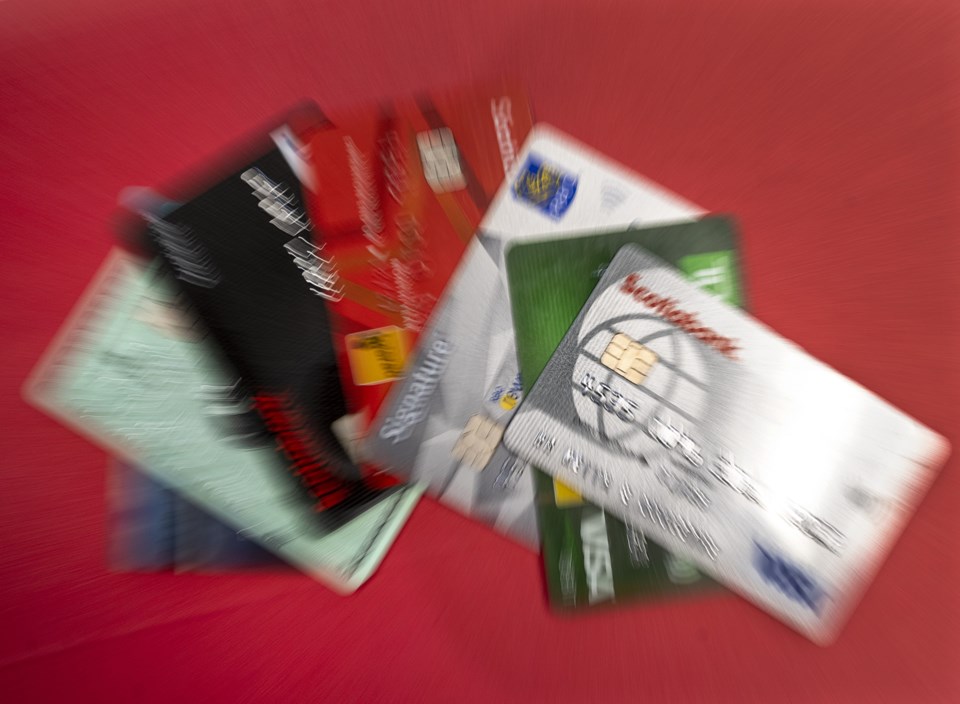Young Canadians are increasingly the targets of financial fraud, experts say, as the age group most comfortable with buying products online is likewise most exposed to risk.
Sixty-five per cent of generation Z and millennials reported being a victim of at least one type of financial fraud in their lifetime, according to a recent survey conducted by the Chartered Professional Accountants of saąúĽĘ´«Ă˝.
Experts’ advice on the matter? Stay vigilant.
“We’ve always assumed older people tend to be the biggest victims for fraud and scams, but our data has shown that it is the Millennial cohort — the digital-first cohort — who are the victims of this recent increase in fraud due to this innate trust they have in technology,” said Maryam Saeed, head of risk at Visa saąúĽĘ´«Ă˝.
“It's important to understand the environment we're currently operating in,” she continued. “As digital payments have grown and consumers expect quick, frictionless and uninterrupted payment experiences, it's a great environment for [fraudsters] to thrive in, so we must be more careful than ever with how we share our information.”
Justin Shimizu learned this lesson the hard way earlier this year.
The 26-year-old paramedic and graduate student from Ottawa had purchased an online gift certificate from Quebec-based luxury spa Groupe Nordik last fall. When the company experienced a data leak in February 2023, Shimizu’s credit card was among those that had been compromised.
However, it took nearly two months before Shimizu, who uses gender-neutral pronouns, learned their credit information had been part of the leak. By that point, someone had already made purchases with Shimizu's card.
“I got a call from my bank in April that there was an issue with a merchant I had made a purchase from, and that they needed to cancel my credit card as a precaution,” they said.
“Then the person on the phone went through my recent purchase history and flagged any potential ones that weren't mine as fraudulent, and there had been a bunch.”
The first purchase the fraudster had made on Shimizu’s card was something they said they would have “easily missed” had it not been flagged by the bank representative — a one dollar charge from a popular food delivery app to ensure the card number worked. Then, between March and April, over $300 worth of purchases had been made using their account.
Merchants are generally required to report compromised credit information to credit companies as soon as the fraudulent activity occurs, though Saeed notes card holders shouldn't rely on notifications alone.
“Keep a record of all your transactions and check your statements,” Saeed added. “That is really the first and most important step in protecting yourself if your credit information has been compromised unknowingly, at no fault of your own."
Instead, one should always be on high alert by practising “simple security hygiene” like setting unique passwords for all online accounts and ignoring links to online sales or deals that may appear “too good to be true.”
She also flagged that some commonly used ways of determining website security may be less reliable as bad actors get smarter. For instance, fraudsters can now impersonate encrypted websites — generally identified with the “https” at the beginning of a web address bar — thereby making it more difficult to tell authentic online merchants from sham ones.
Looking back, Shimizu said their biggest regret was taking their credit security for granted and not being in the habit of regularly tracking their card activity.
“I’ve definitely taken steps to make sure this doesn’t happen again,” they said. “I’m much more on top of my bills now, and turned on credit notifications so I know each time my credit card has been used.”
Luckily, Shimizu was automatically reimbursed the full amount of the fraudulent purchases by their credit company. This is a right every credit card user should know about, said Saeed.
She also stressed how staying on top of one’s credit activity can ensure card holders avoid consequences like a temporary dip in one’s credit score as a result of unpaid bills or higher utilization rates — a rare but possible consequence of credit fraud that may take a while for the bank to resolve, but is less likely to occur the sooner it’s reported.
Shimizu said that though their credit score decreased due to the fraud, it was only by a negligible amount. Nevertheless, the drop forced them to reflect on what the financial effects could have been.
“This situation was especially stressful because, at the time, I was in the middle of getting ready to buy my first house,” they said. “I've had colleagues who had their identities stolen and their credit history destroyed — which they didn’t find out about until they tried to take out a mortgage and were rejected.
"With the economy we’re in right now, not everyone can afford to take that kind of hit to their credit score or their credit limit."
This report by The Canadian Press was first published June 27, 2023.
Pascale Malenfant, The Canadian Press



